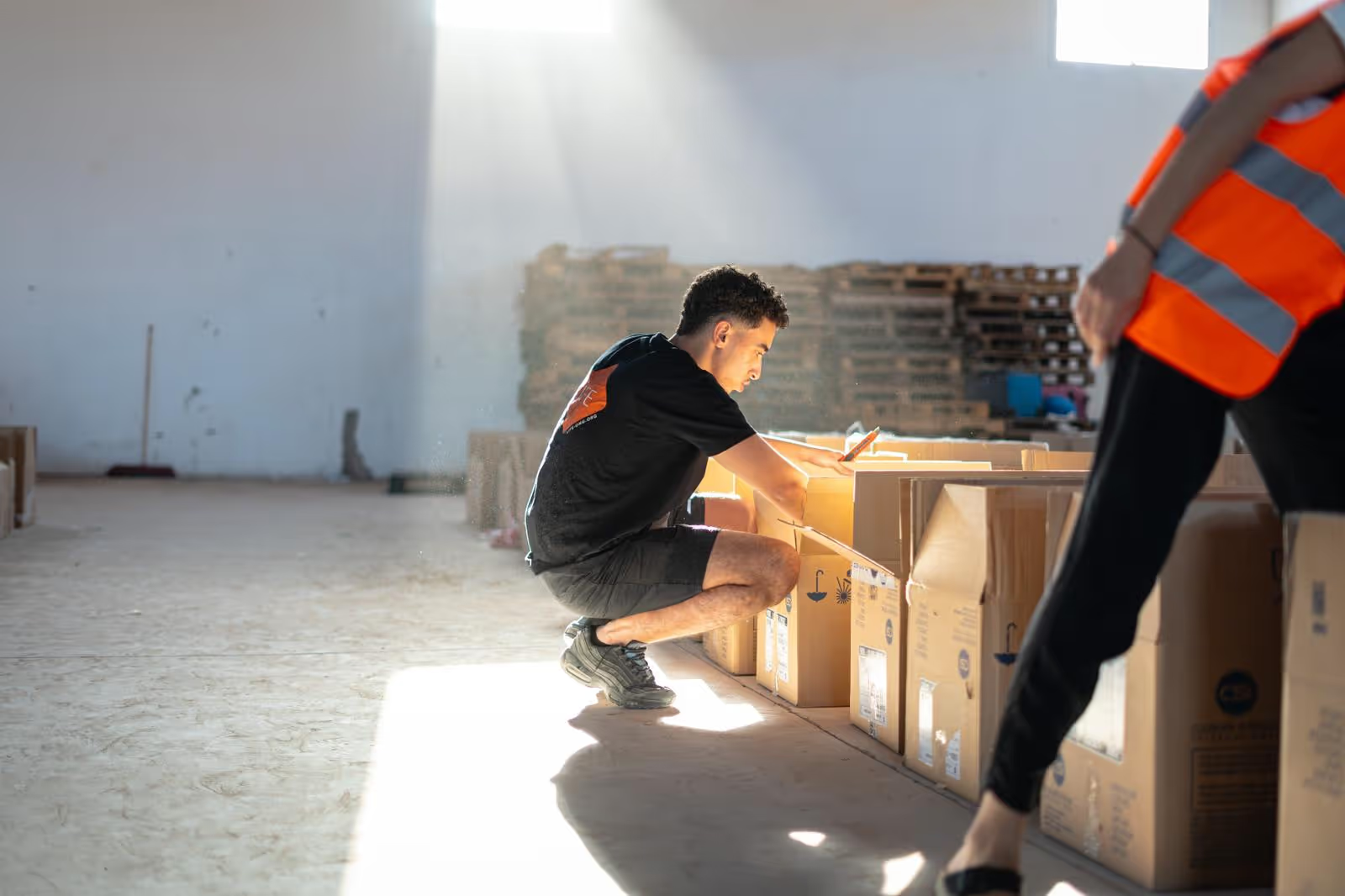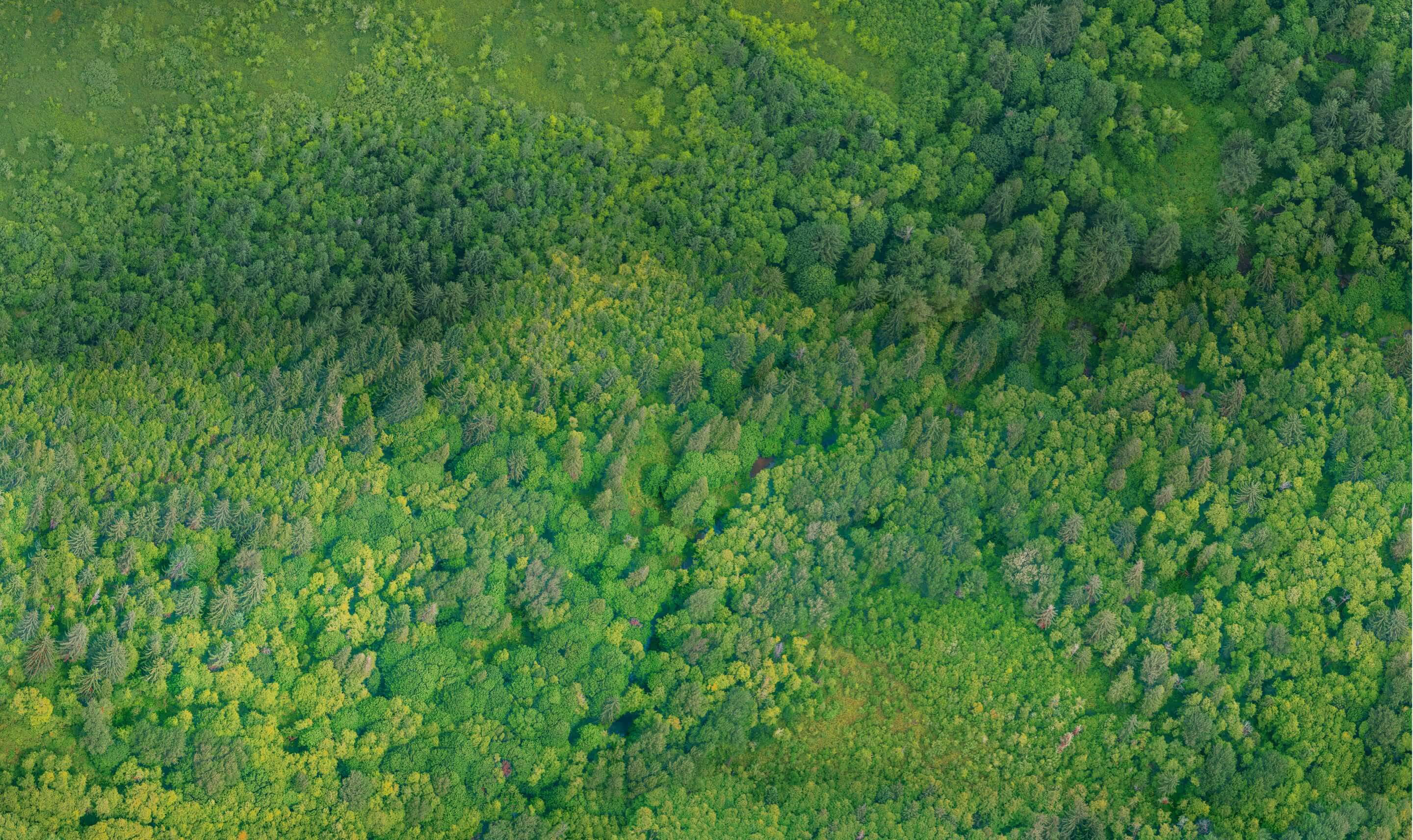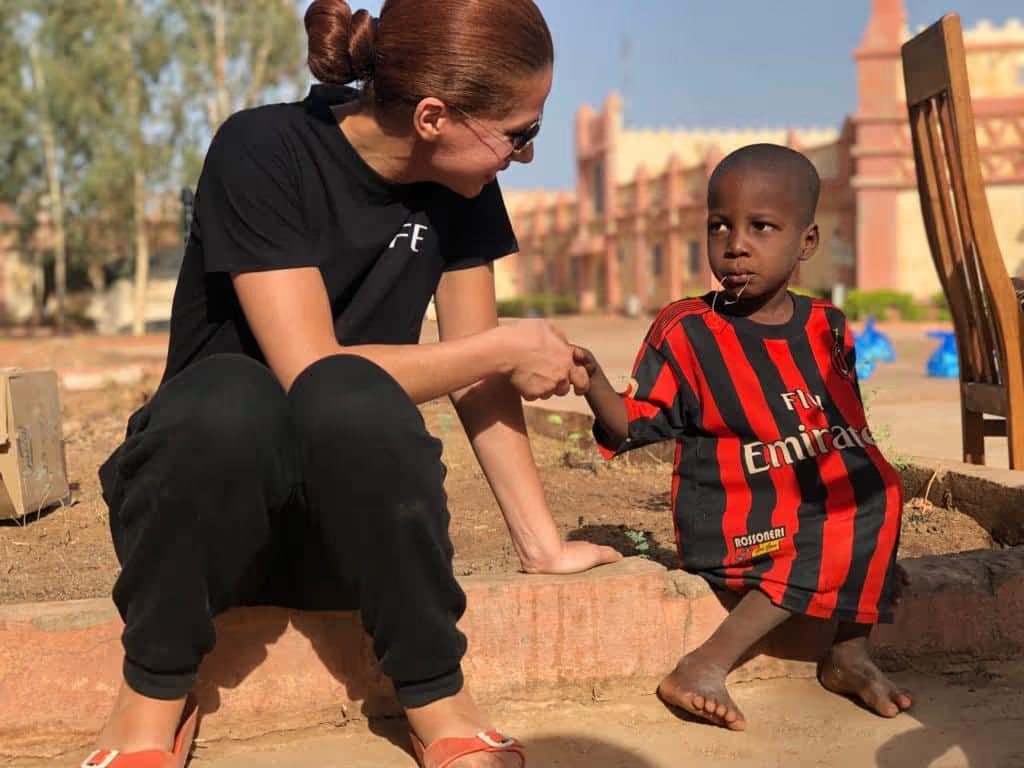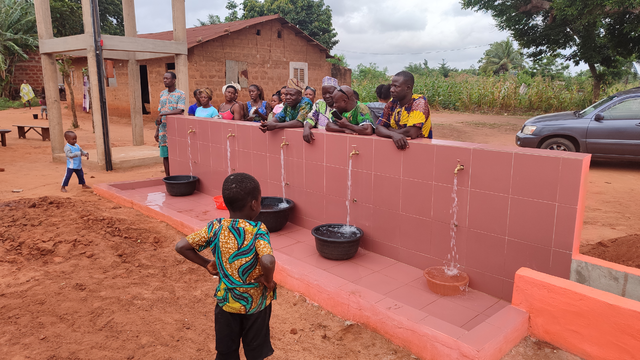Indonesia: bamboos against global warming

In Indonesia, forests considered to be among the richest in the world in biodiversity are still threatened by deforestation. Faced with this situation, a solution exists: reforestation. It is essential for the preservation of the environment, but also for ensuring the livelihoods of local populations.
In the field, our NGO is doing everything possible to restore this great ecosystem. How? In particular, by planting bamboos in Genggeland, a village north of Lombok, an island located east of Bali. Why bamboos? Our action in Geggelang tells you more.
What about deforestation in Indonesia?
Progress, but not only...
Indonesia is one of the green lungs of our planet. Its tropical forest is the 3E in the world and its forest area is in 8E stance ! After decades of wild deforestation, the rate of disappearance of its forests fell by more than 50% between 2015 and 2021, reaching its lowest level in twenty years. It is encouraging, but we must not give up. Deforestation is far from being stopped! After the announcement of the COP26 in 2021 of a goal of “zero deforestation”, Indonesia is having a hard time meeting its commitments.
What are the causes of deforestation in Indonesia?
Deforestation is mainly due to Agriculture, in particular to oil palm plantations, which are very profitable for small and large farmers, to Pulp production, but also to mining projects, illegal logging and uncontrolled fires.
Why is it essential to encourage reforestation?
The need to preserve tremendous biodiversity
Indonesia's forests are among the most diverse in the world. Here you can see orangutans, Sumatran tigers, and elephants. All of these species are threatened by deforestation. Reforester contributes to the restoration of their natural habitats, thus allowing their survival.
Reforest to regulate the climate
Forests absorb carbon dioxide, thereby reducing its concentration in the atmosphere and mitigating the effects of global warming. In addition, they influence rainfall patterns and contribute to the stability of the local and global climate.
Did you know that? In Indonesia, deforestation is a major source of greenhouse gas emissions, contributing to climate change. According to The 2020 Global Forests Watch annual report, the destruction of Indonesia's primary forests has resulted in the emission of at least 2.64 gigatons of CO2. That's equivalent to the annual emissions of 570 million cars!

The protection of soil and water resources
In Indonesia, deforestation causes soil erosion, reducing soil fertility and increasing the risk of landslides. In addition, forests play a vital role in regulating the water cycle. They contribute to the recharge of groundwater and to the purification of water, thus guaranteeing access to quality water resources for local communities.
Indonesia and climate change
It is all the more urgent to act, to preserve what exists and to replant what has been destroyed, because Indonesia is particularly exposed to the effects of climate change. As an archipelago with over 17,000 islands, rising sea levels threaten to submerge land and coasts. The country is prone to extreme weather events such as floods, landslides, and cyclones. In addition, fragile ecosystems such as tropical forests, coral reefs and mangroves are very sensitive to climate change. Finally, the Indonesian economy, which is heavily dependent on agriculture, fishing and tourism, is particularly vulnerable to climate variations.
Did you know that? Mangrove forests store 5 times more carbon than other forests. Their preservation and restoration is essential in Indonesia and all over the world. Our NGO LIFE participates in this, in particular in Sumatra..
The reforestation project of our NGO in Genggeland in Indonesia
Several NGOs are working in Indonesia to restore degraded forests. These reforestation programs often involve the planting of native trees to recreate natural ecosystems. On the island of Lombok, our NGO LIFE focuses particularly on bamboo and also on other specific species. What are their advantages? What is the objective of the project?
The economic opportunities of bamboo
Bamboo can be used for a variety of applications. As a result, its plantation offers a diversified and sustainable source of income:
- Construction : it can be used for almost any part of the house (posts, roofs, roofs, walls, floors, beams, trusses and fences, etc.);
- Crafts : it is used to make furniture, kitchen utensils, textiles, musical instruments, etc.;
- in the food sector, bamboo shoots are becoming more and more popular. They are rich in fiber, vitamins and minerals. They can be consumed locally or sold in markets, offering a sustainable food source and a commercial opportunity;
- coal production.

The ecological benefits of bamboo
Bamboo products can replace wood for many applications, which reduces pressure on forest resources and contributes to the sustainable management of these resources.
And to make matters worse, he plays a crucial role in the restoration of degraded soils. Thanks to its dense root system, it helps to prevent erosion and improves its structure. In addition, bamboos have a high carbon sequestration capacity, thus contributing to the fight against climate change. Once planted, bamboos develop very quickly and reach maturity in just a few years. They therefore offer a quick and effective solution for reforestation.

What about the use of bamboo in Genggeland?
Many people living in northern Lombok (western Nusa Tenggara province) live from agriculture, fishing and tourism. In Genggeland, many rely on forest resources for their livelihood, including collecting firewood, medicinal plants, and non-wood forest products. As a result, forests are exploited, sometimes too much, and are no longer sufficient to ensure their food security and economic well-being.
Communities, mostly poor, already use bamboo on a daily basis and provide materials made from them to the surrounding region. However, its production is decreasing, as many landowners replace it with other crops or agricultural activities. The reason for that: a lack of awareness about its advantages, about its possibilities of use.
Indeed, most of the bamboos traded in this region are raw raw materials, often perceived as less valuable than other plants such as coffee, wood or oil palm trees. Its use remains limited to modest uses such as crop stakes, vegetable baskets, construction supports and chicken cages, which does not value it.
The objective of our project
The project of our NGO LIFE has several objectives:
1) It aims to restore the region's bamboo and tree forests in order to regenerate soils, create carbon sinks and reinvigorate biodiversity..
Together with our partners and the local population (volunteers, local tourism associations, local tourism associations, youth groups and academic institutions, etc.), we created a greenhouse and a seed zone, and planted more than 21,000 trees including around 5,000 mixed bamboos and 15,000 fruit trees. These include nangka (Artocarpus heterophyllus), mangga (Mangifera indica), rambutan (Nephelium lappaceum), avocado (Persea americana), durian (Durio spp.), and sawo (Manilkara zapota). This selection of trees is made in collaboration with the regency forest office and the village government. By combining bamboo and fruit trees, communities will be able to reap the benefits after five years.


2) Giving residents the tools they need to improve their quality of life and broaden the diversification of their income through sustainable and environmentally friendly solutions.
3) Raise awareness among local communities about the importance of bamboo and trees from an ecological and economic point of view.
4) Offer training on planting techniques, sustainable forest management and the processing of bamboo products. Thanks to them, communities become more autonomous and resilient by better managing their natural resources and by developing sustainable economic activities in the long term.

Who are the ones who will benefit from the project?
∙ Three community groups have emerged: the first is dedicated to planting bamboo seedlings, the second to making bamboo crafts, and the third to creating bamboo furniture.
∙ 30 people are trained in the use of bamboo to make furniture and crafts (60% of the participants are women).
∙ 100 families (around 400 family members) received trees to plant on their land.

KUN: our indispensable local partner
The reforestation program collaborates with a variety of stakeholders, including local organizations, educational institutions, and government agencies, increasing its reach and impact. Among these partners in the field, our NGO LIFE is joining forces with KUN Humanity System, which has extensive experience working with local and international NGOs. Its long-term mission: to offer the most effective and comprehensive responses to emergency situations caused by natural or human disasters. Over time, the organization has found that massive logging is taking place after the disasters. Its origin? The population is building their own shelters. Since 2018, all recovery programs have therefore included the Bamboo Project, which provides communities with bamboo shelters to rebuild themselves.

In total, 12 shelters were built in Palu, 65 in Sigi district, 3 large community spaces in Banten after the tsunami, 3 community spaces in Lombok after the earthquake, and 4 community spaces in Sigi district. But KUN does not stop there. The organization is continuing the program with planting and raising community awareness about the use of trees, especially bamboo. When the latter is still underused in a community, it initiates training and skills development programs so that it is more valued. A community group called “Bamboo Warriors” has been established in some areas, including Kulawi in Sigi district. A total of 59 skilled bamboo construction workers were trained.

How can we ensure the sustainability of our action?
Our partner KUN has been working with targeted communities and local authorities since 2018. He maintains relationships of trust with them, which are key to the success of this ambitious program. From the very beginning, residents are involved in choosing planting sites and maintaining them, thus demonstrating their commitment to the project. All meetings and activities are recorded and reported to the project manager. Each activity is documented with photos and videos.
Furthermore, as KUN has developed bamboo community groups in other regions, Genggeland groups will be connected with other bamboo communities in the sector. KUN plans to extend the program in this area for three years in order to ensure the sustainability of the bamboo project.
The socio-economic interest of reforestation in Indonesia, in particular through the planting of bamboo, is undeniable. By creating jobs, increasing incomes, developing skills, improving food security, and building resilience to climate change, these initiatives offer substantial benefits to local communities. The actions of NGOs, in collaboration with governments and businesses, are crucial in promoting reforestation and exploiting the potential of bamboo as a driver of sustainable development and socio-economic well-being. By adopting sustainable forest management practices, Indonesia can protect its valuable natural resources while improving the living conditions of its rural populations.
Together, let's promote the resilience of local communities in the face of climate change



.avif)





